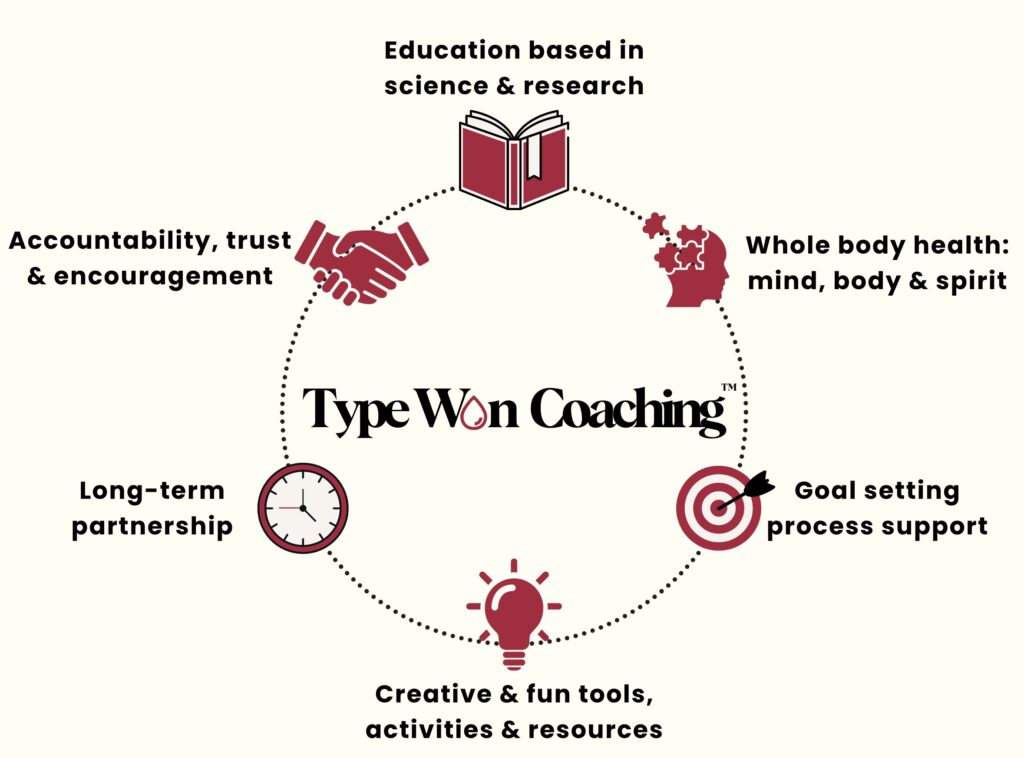
As a type 1 diabetes caregiver, your love and support play a crucial role in helping your child and family thrive.
Whether you’re new to this journey or seeking to strengthen your skills, boosting your confidence can make a world of difference, especially in managing the ups and downs of diabetes.
Did you know, as a T1D parent, your attitude and stress levels significantly impact diabetes outcomes? In fact, a 2023 study examined 157 T1D families of school-age children.
The researchers found the parents’ distress levels were the strongest predictor of their child’s HbA1c levels, more so than the child’s own stress! This eye-opening research highlights the profound impact a caregiver’s outlook, energy, and confidence can have.
In today’s post, we’ll explore four practical ways to boost your confidence as a type 1 diabetes caregiver. From educating yourself to celebrating small victories, these tips will help you feel more empowered and connected every step of the way.
Let’s dive in together!
Tip #1: Educate, educate, educate!
Educating yourself as a type 1 diabetes caregiver is essential for both your peace of mind and the well-being of your loved one. Knowledge empowers you to handle daily challenges with confidence and make informed decisions about diabetes management.
Start by learning the basics from reputable sources like the Juvenile Diabetes Research Foundation (JDRF) and talking to trusted healthcare professionals.
Joining online forums and local support groups can also provide valuable insights and shared experiences.
Type Won Coaching™ can also provide incredible support. I encourage you to learn about the power of coaching from my previous posts here:
- Let Health Coaching Transform Your Type 1 Diabetes Journey
- 3 Ways Health Coaching Supports Type 1 Diabetes Caregivers
- 5 Proven Ways To Prepare For Every Health Coaching Session

Tip #2: Find your village
As a type 1 diabetes caregiver, you passionately advocate for your child’s needs, but it’s important to find support for yourself too. Who is your support system on this journey?
Take some private time to reflect on these questions: Who is on your diabetes support team now, and what is their role? If you could wave a magic wand for more support, what or who would it be and why? How has your diabetes support team helped you thus far?
Support can come from many sources – partners, parents, grandparents, siblings, aunts, uncles, doctors, nurses, coaches, school staff, church groups, friends, and more.
Get creative in identifying who you can turn to. Diabetes takes a village – who is your village?
Tip #3: Get Organized!
Even if organization isn’t your strong suit, small steps can create the structure your child needs to thrive with diabetes. Here are a few ideas to help your family organize diabetes supplies:
Create a Designated Storage Space
Choose a specific area in your home for diabetes supplies, such as the kitchen, pantry, closet, bathroom, or your child’s bedroom. Having everything in one easily accessible place prevents frantic searches and brings greater peace of mind.
Utilize a Portable Organizer
Having the right supplies on the go prevents unexpected emergencies. We keep a portable organizer in the car, at my husband’s office, and at both sets of parents’ homes. This proactive step ensures we’re never scrambling at the last minute looking for specific supplies.
Keep Up-to-Date
Every three months, our family spends 1-2 hours organizing my husband’s diabetes supplies on our dining room table. We check expiration dates on items like test strips, lancets, insulin, syringes, and CGM supplies.
Remember, the goal of organization is to lighten your load as a caregiver, not to overwhelm you. When our home is organized, I feel less stressed, and my husband knows exactly where to find his supplies. This allows us to focus on enjoying time together and having fun beyond diabetes management.
Tip #4: Look for small wins
As a health coach, I’ve seen how stacking small wins can make a big difference, and I apply the same approach to our family’s diabetes journey. Your energy flows where your attention goes, so track your wins – big or small – as a type 1 diabetes family.
You can jot down your victories in a notebook, on a whiteboard, or on your phone! Tracking small wins is incredibly powerful. A Harvard Business Review study shows that recognizing small accomplishments boosts motivation and well-being, which is crucial for managing diabetes.
For diabetes caregivers, this means writing down daily achievements like consistent blood sugar checks, daily movement or choosing blood sugar-friendly foods when dining out.
Celebrating these small victories keeps you motivated, helps track progress, and creates a positive feedback loop, empowering you on your diabetes journey!
Let’s recap…
The type 1 diabetes journey comes with many highs and lows, and no day is ever the same. Being a caregiver requires a lot physically, mentally, and emotionally. It’s okay to feel overwhelmed, confused, or frustrated at times – trust me, I’ve been there too.
But remember, you’re not alone. There’s plenty of support available, whether it’s through a coaching partnership or speaking with your trusted healthcare team.
Boosting your confidence can start with small steps. Educating yourself about diabetes helps you understand the challenges and opportunities it brings to your family.
Finding a trusted support system, be it your partner, parents, siblings, or support groups, can be immensely powerful. Staying organized and focusing on the positives can also make a big difference.
Our family loves tracking small wins or ending the day with three things we’re grateful for. Now it’s your turn! How can you see the positives starting today?
Remember, you’re doing an amazing job. You’re an incredible parent, growing and evolving with each step of this journey.
Until next time, sending you and your family so much love!
Allee
This blog is made for informational and educational purposes only. It is not medical advice. The information in this blog is not intended to (1) replace a one-on-one relationship with a qualified licensed healthcare provider, (2) create or establish a provider-patient relationship, or (3) create a duty for us to follow up with you.
Leave a comment +